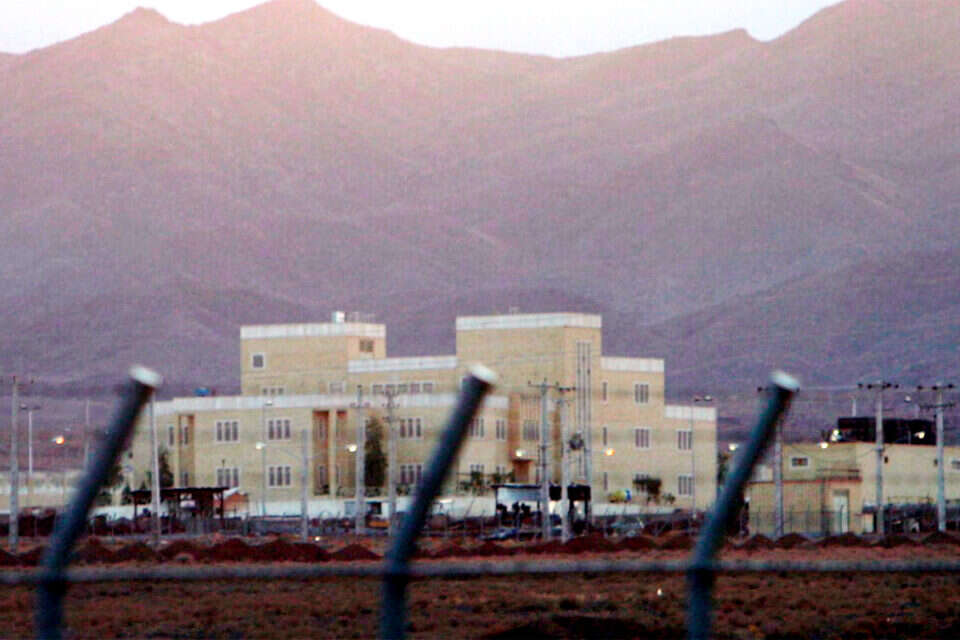The State of Israel and the international arena are entering the third decade of dialogue and engagement on the Iranian nuclear issue - between diplomatic negotiations, one credible military threat or another, and covert combat of nuclear infrastructure.
The question arises - how has it been three decades since the Iranian nuclear infrastructure has been in place?
The present article will offer a theory - of the author only - that we probably do not see a plane of the Israeli Air Force or a coalition of countries, which will appear one night in the skies of Iran, after which all Iranian nuclear infrastructure will be damaged for years to come.
My theory, and it is based on what we have seen so far across the plains, is that the attack on Iranian nuclear facilities has been dropped.
That is not the goal, and there is no real chance of achieving it.
First, there is the understanding that Iranian nuclear facilities are active in one product or another - it is no longer a secret that the Iranians have enriched uranium, and that they are fully active - attacking infrastructure producing this material means huge environmental destruction, with many repercussions on everyone and the environment. They are not under construction, this is not future infrastructure - these are manned and active facilities.
"Mighty" F-35 aircraft of the Air Force, Photo: IDF Spokesman
Second, and this too has long been no secret, these facilities are known, recognized, and well protected - both in infrastructure and in military forces. The Iranians are not an enemy to be underestimated, these facilities constitute significant key areas for them, and hence their protection is extremely massive. Since the discourse about "assault" has been rolling for years, it is very likely that the level of protection against them is among the highest if not the highest there is. This is in contrast to, for example, the Syrian reactor, which, in order not to attract attention, was not protected by Assad at all. The attack on Syria by the Air Force was relatively simple and without significant resistance. In Iran the film is completely different. The cost of an attack will be heavy, both towards the forces that will attack, and in the war response that will follow.
Third, is the geo-strategic interests.
Does anyone think Putin would be willing to degrade regional stability in this way?
Will he give up his interests in the Syrian-sponsored state whose stability depends on the Iranians?
After Trump, who not only did not disqualify the negotiating channel, did not attack the Iranians during his term, can a leader be identified who would lend a hand to such an attack?
Could it be that in the coming years someone will attack such protected and high-risk areas, having avoided them for more than two decades?
When the infrastructure was still under construction and not active?
The accumulation of things and happenings so far, as mentioned, over several decades indicates a real unwillingness to attack the nuclear infrastructure massively to the point of destruction, and hence by and large, we will continue to see what we have seen so far - actions of one intensity or another, And slowing down processes.
This includes harming experts and scientists, and at the same time a diplomatic channel that will sometimes lead and eagles will be frozen.
The whole idea is to prevent Iran from reaching for nuclear weapons.
Iranian President Ibrahim Raisi, June 2021, Photo: IPA.
This reality pretty much serves everyone - the Iranians threaten and get attention, probably quite a bit of money, the defense industries work overtime in production and development, huge resources are allocated and arms deals are booming - both in the defensive context, for example Russian 300-S missiles on the one hand and American stealth aircraft on the other. .
The whole system speaks for itself to know, but it is evident and even more so that no one really wants to change the situation fundamentally.
No one wants to degenerate into a regional war, and no one wants to take the necessary risks.
And if there is one thing that is prayed for in all the capitals of the West, it is that the regime of the ayatollahs will collapse, that the Islamic revolution will pass from the world, if only it were possible.
Faced with this longing, it can be assumed that if Iran exaggerates, if its threats and pursuits cross red lines that will defy the international community, or even Israel into an intolerable situation - then what will be attacked, if and when they are not nuclear facilities - but the Iranian leadership as a whole.
The Iranians, being rational, understand this well, so they continue to play the same game, which on the one hand does not disrupt their Middle Eastern hegemony plans too much, and on the other hand does not lead to a strong desire to create a critical mass of disgust towards them.
Everyone has probably learned the lesson from the recent war in Iraq - whatever the leadership, its decapitation does not necessarily serve the long-term interests.
Hence, that in the foreseeable future no substantial change is seen.

